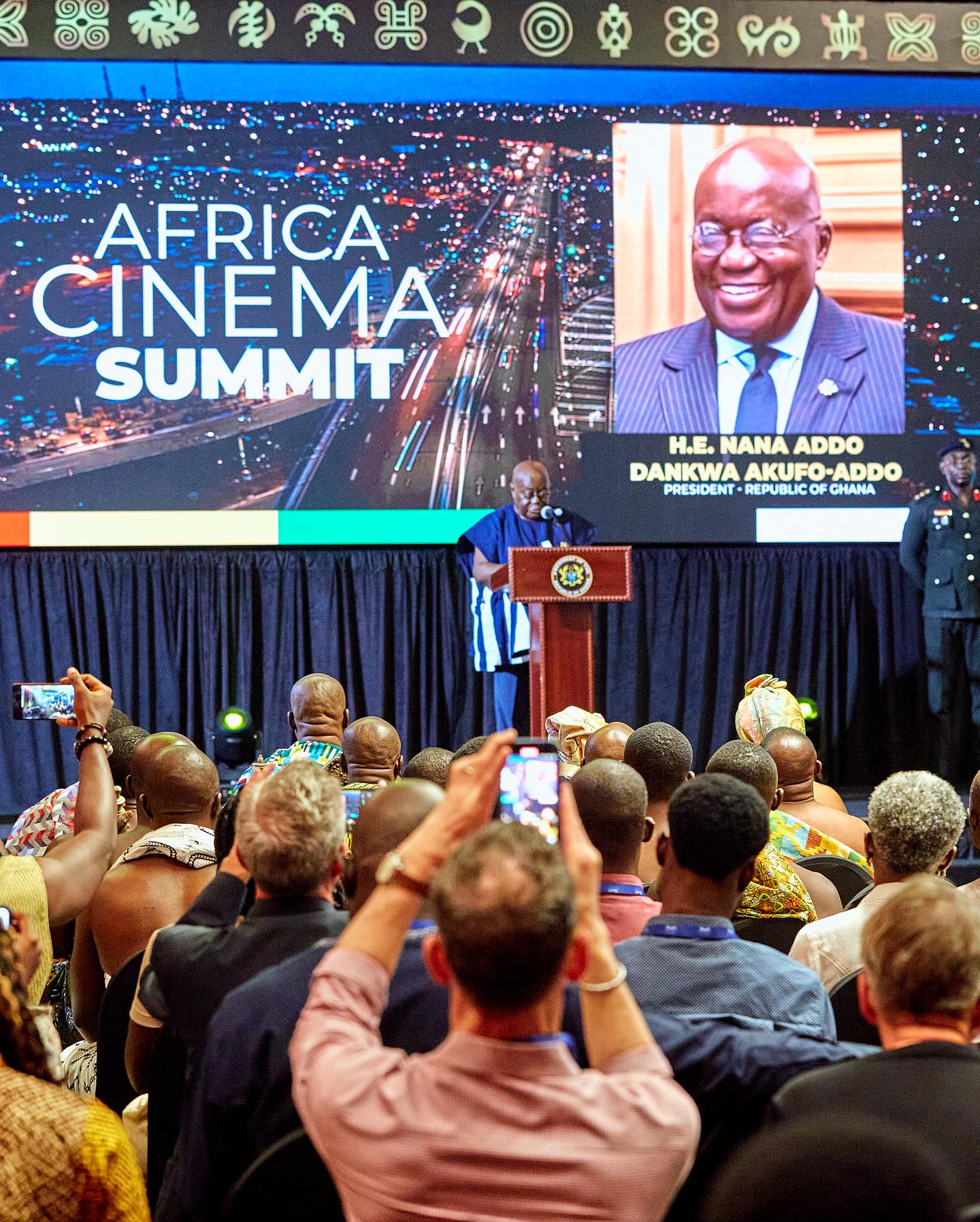During the African cinema summit, the first cinema summit in Africa since the beginning of cinema, brought light towards several ways to enhance the cinema experience for both creatives and consumers. One thing that stood out for me as a filmmaker was the emphasis on “COLLABORATION,†a key campaign in the Ghanaian film space.
Cultural Representation: African cinema serves as a pivotal platform for authentic storytelling, spotlighting a myriad of cultures, traditions, and perspectives often overshadowed in mainstream media. Collaboration enhances the global resonance of these voices. Ruth Kibuuka, representing the Ugandan Communication Commission, asserted, ‘Africa is a vast continent with diverse cultures and shared similarities, offering enduring stories across generations.’ This underscores the significance of concerted efforts to deliberately showcase our cultures, preventing external narratives from dominating. Africa, with its wealth of stories, compels every African to delve into and take ownership of this narrative. A superior cinema is achieved through the incorporation of rich content.
Economic Growth: A flourishing film industry significantly contributes to economic development. Collaborative efforts create opportunities for job creation, skills development, and the growth of associated sectors like tourism and technology. Rwanda’s success in standardizing tax incentives has not only transformed its economic landscape but also reflects a profound understanding of individual and national growth. As Christian Rudahinyuka, the Program Manager of Rwanda Development Board, aptly puts it, “Coming together as a continent with a shared understandingâ€â€If Rwanda made it, we can all make it.” Several speakers, including Jay Foley and Adenkule Afolayan, emphasized the need to move away from a fast-food approach to filmmaking, urging a focus on authentic African storytelling. Jay Foley humorously highlighted the pitfalls of rushing movie production, emphasizing the importance of a well-cooked product for success in the global market. Adenkule Afolayan, the Nigerian film director/producer, underscored the significance of proper financial allocation in production, stating that withholding funds hinders both creative lives and the industry on a global scale. In conclusion, let’s cease compromising and strive for content excellence. Through effective collaboration and a commitment to quality, we can contribute to a robust global economy and ensure sustained growth in the creative industry.
Global Understanding: African cinema serves as a bridge for global audiences to better comprehend the continent’s complexities, challenges, and successes. Collaborative efforts enhance cross-cultural dialogue and foster mutual understanding. The discussion on global understanding stood out, emphasizing the importance of a unified approach when addressing Africa, considering it as a collective entity rather than individual countries. Danny Dammah,
Producer at TD Afrique Films, proposed a practical solution for fostering collaboration in the African cinema space. “We need filmmakers’ collectives where we can share our films not only within our country but beyond. Our films should transcend borders, addressing a challenge we currently face in Africa.” This shortage of distribution channels makes it challenging for filmmakers to expand their reach. The lack of structured distribution systems in Africa leads to limited reach for filmmakers. Danny’s insight highlights the importance of establishing distribution networks, allowing producers to plan effectively before filming begins. Nana Yaw, Business Manager at SilverBird, pointed out a common issue: “Most producers lack understanding of distribution; they finish their films and approach me after the premiere, asking how to sell.” To thrive as creatives globally, it’s crucial to comprehend the intricacies of distribution and collaborate with those well-versed in their respective fields before embarking on the creative process, ensuring the industry’s depth and success.
Talent Development: Through collaboration, filmmakers can exchange expertise, resources, and experiences, accelerating the growth of individual talents and elevating the industry as a whole. Many speakers highlighted the importance of capacity building as a key element in transcending knowledge and skills to the younger generation. Film workshops provide valuable spaces for collaboration, and establishing such initiatives across the continent would be beneficial for aspiring talent. It’s commendable to learn about Adekule’s impactful work in empowering numerous students, and this underscores the significance of capacity building as a powerful tool for nurturing talent and fostering collaboration within the industry.
Empowerment and Representation: Collaboration in the film industry empowers local talents and encourages the representation of diverse voices. This inclusivity is crucial for breaking stereotypes, challenging misconceptions, and fostering a sense of pride and identity. Throughout history, Africa has been described in various ways. Today, the empowerment of Africa lies in the stories we tell and how we represent ourselves. If we collectively agree on the way we present ourselves and believe in the stories we tell, Africa can become the sought-after destination for all continents. Recognizing the power in our position as Africans and uniting as a team is the gateway to the new Africa Cinema. Together, we can proudly declare, ‘Africa Did It!’ In essence, collaboration in building the African film industry is pivotal for cultural enrichment, economic prosperity, global connectivity, talent empowerment, and inclusive representation.

Mortinno Morton, a Ghanaian filmmaker and editor who won Best Video Editor of the Year at the recent Ghana Film and Television Crew Awards, believes five key points, such as cultural representation and economic growth, are strong tools for building a solid industry, all rooted in collaboration.



